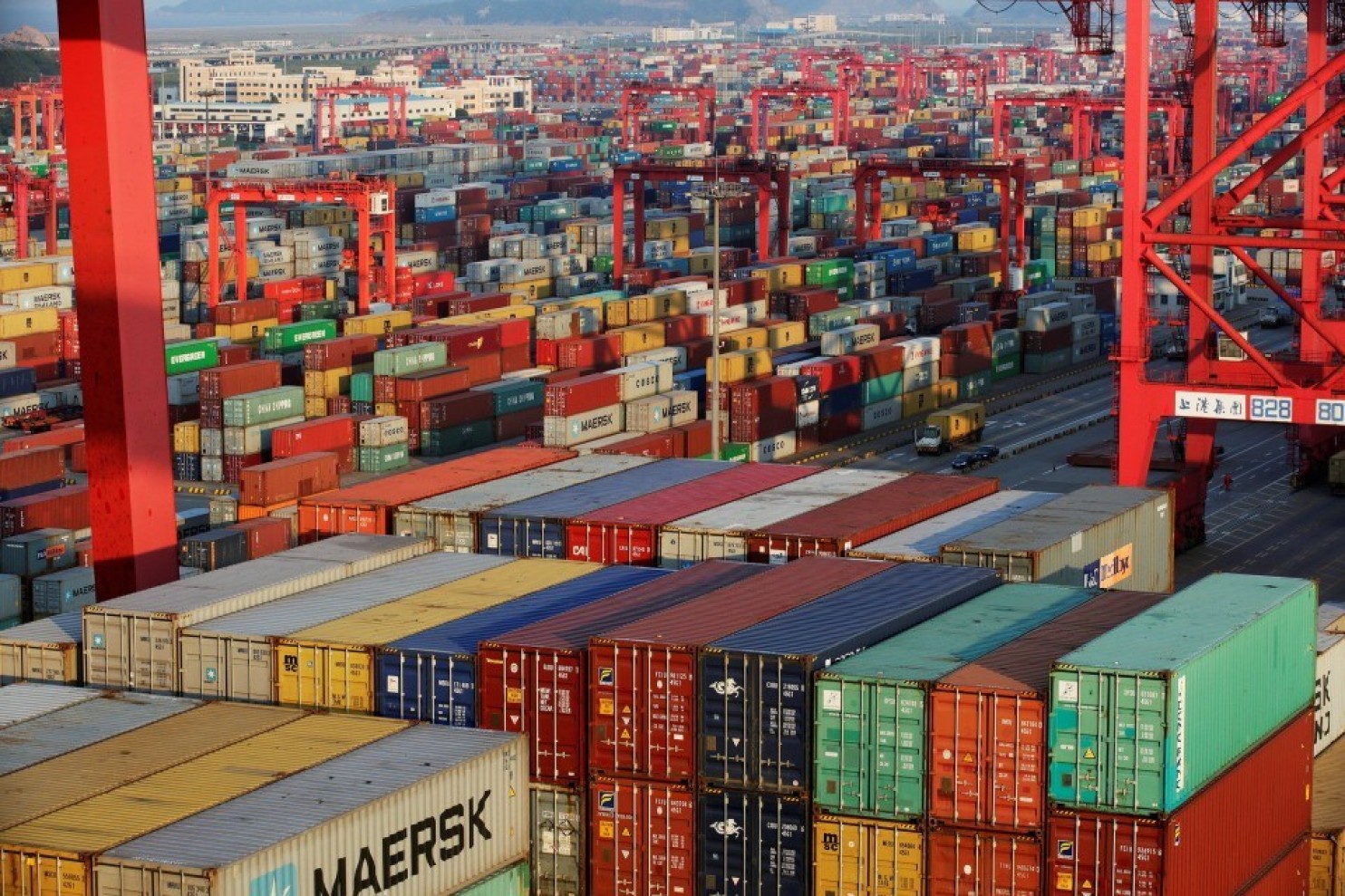
The Wall Street Journal reports, "China's point man on trade talks with the U.S., Vice Premier Liu He, said external pressure serves his nation's long-term interests, providing rare insight into how he frames the high-stakes tussle between the world's two biggest economies. Mr. Liu told a financial forum Thursday that such pressures, which he didn't specify, are spurring China to create stronger domestic capital markets and more innovative industrial supply chains while making financial risks and domestic consumption high priorities. He described those as welcome trends in China's transition 'from being big to being strong' and said they would make for a 'steady and balanced economy.' During his presentation at Shanghai's Lujiazui Forum, the 67-year-old technocrat didn't refer directly to the U.S. or the trade talks that he has led. His arguments about China's economic wherewithal dovetailed with Chinese officialdom's assertion that Beijing can weather a trade fight it sees as having been started by the U.S."
- Bloomberg reports, "Telegram founder Pavel Durov said a massive cyber-attack on his messaging service originated in China, raising questions about whether Beijing tried to disrupt a protest involving hundreds of thousands that erupted on the streets of Hong Kong. The encrypted messaging app said it experienced a powerful distributed denial of service attack after 'garbage requests' flooded its servers and disrupted legitimate communications. Most of those queries came from Chinese internet protocol addresses, founder Pavel Durov said in a subsequent Twitter post. 'This case was not an exception,' he tweeted without elaborating. Hong Kong is in the throes of political unrest as the Beijing-backed government attempts to force through controversial legislation that would for the first time allow extraditions to China, which protesters fear could be used to squelch government opposition."
- Reuters reports, "U.S. Senators Mark Warner and Marco Rubio on Thursday urged the Trump administration not to use Huawei Technologies Co as a bargaining chip in trade talks with China that might allow expanded use of the company's equipment in the U.S. telecommunications industry. 'Allowing the use of Huawei equipment in U.S. telecommunications infrastructure is harmful to our national security,' the senators wrote. 'In no way should Huawei be used as a bargaining chip in trade negotiations.' Trump reiterated on Monday in a CNBC interview that Huawei could be part of a trade deal with China, a position he has repeatedly stated, even though he has said Huawei is 'dangerous.' Rubio, a Republican and Warner, a Democrat, both serve on the Senate Intelligence Committee. In a letter to U.S. Trade Representative Robert Lighthizer and Secretary of State Mike Pompeo, the senators said 'Europeans have publicly expressed fears that the administration will soften its position on Huawei in the United States to gain leverage in trade talks, as the administration did in June 2018 when the seven-year ban on ZTE was reversed.'"
- 2019-06-12 Wall Street Is Lending Billions to China's Hottest Tech Unicorns
- 2019-06-11 China Moves to Close Gap in Trade Expertise as Clash With Trump Intensifies
- 2019-06-10 More than 1 million protest in Hong Kong, organizers say, over Chinese extradition law
- 2019-06-07 Outrage in Hong Kong as Extradition Plan Exposes Deep Fears of China’s Rule
- 2019-06-06 Trump to decide on $300 billion China tariffs after G20 meeting
- 2019-06-05 Ford Is Fined in China as Trade Fight With U.S. Rages
- 2019-06-04 A Slower Economy. A Trade War. Now, China Faces Rising Food Prices.
- 2019-06-03 China warns students about ‘risks’ of going to the U.S. in the latest twist to the trade war
- 2019-06-02 China Signals It Is Willing to Return to Trade Talks With US
- 2019-05-31 China says it will blacklist ‘unreliable’ companies and individuals in response to technology ban
- Bloomberg Telegram Traces Massive Cyber Attack to China During Hong Kong Protests
- Reuters U.S. senators urge Trump not to use Huawei as bargaining chip in trade talks
- The Wall Street Journal China's Trade Frontman Points, With Laser, to Bright Side of U.S. Tensions
- Reuters Brazil wants China to invest in its infrastructure: vice president
- CNBC Oil prices could fall to $45 per barrel if US-China trade war escalates, says investor
- The New York Times China Frees Church Leader After 6 Months in Detention
- Bloomberg The U.S. Is Purging Chinese Cancer Researchers From Top Institutions
- Reuters Ottawa expands insurance for Canadian canola exporters amid China dispute
- The Washington Post Beijing was already looking for ways to rein in Hong Kong. A gruesome Taiwan murder gave it a rare opening.
- CNBC The price of apples is soaring in China, and Beijing is showing concern
- Bloomberg Hong Kong Is Just One of Xi's Mounting Crises
- The New York Times Sinking of Philippine Boat Puts South China Sea Back at Issue
- The Washington Post Archaeologists find signs of ritualized cannabis use 2,500 years ago in China
- The Washington Post Taiwan leader Tsai gets party nod to run for reelection
- Financial Times China should not remake its bond markets in US image
- The Washington Post China's infiltration of U.S. capital markets is a national security concern
- Bloomberg How to Clean Up the Belt and Road
- CNN Beijing walks a thin line as Hong Kong erupts at the worst possible time
- Politico A new moon race is on. Is China already ahead?
- Foreign Policy China Is Bluffing in the Trade War
